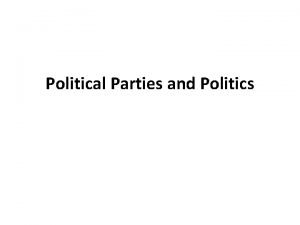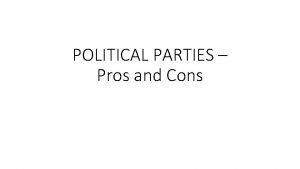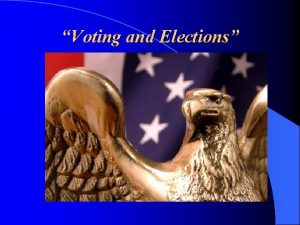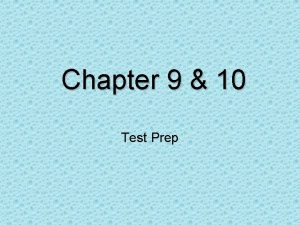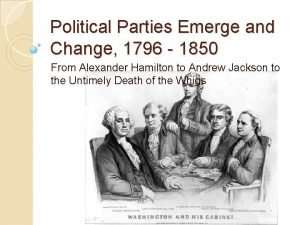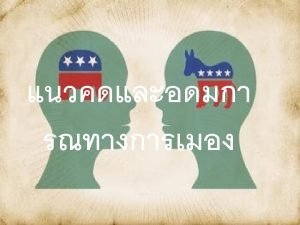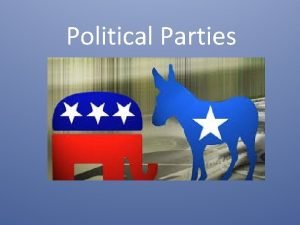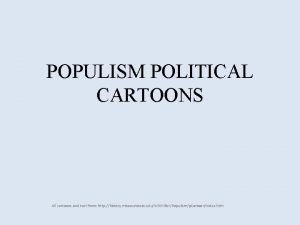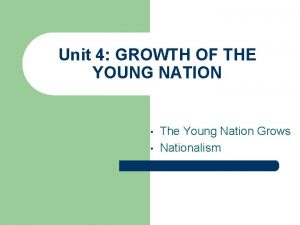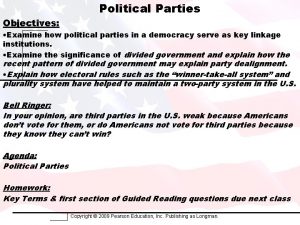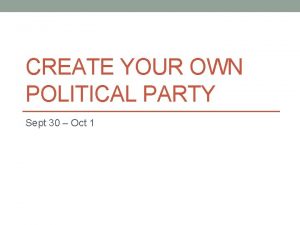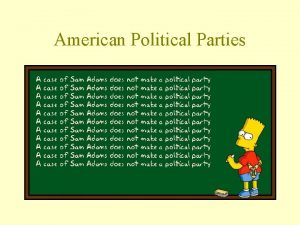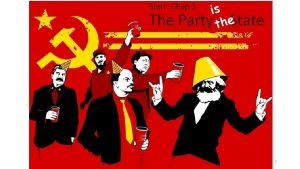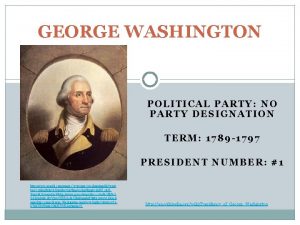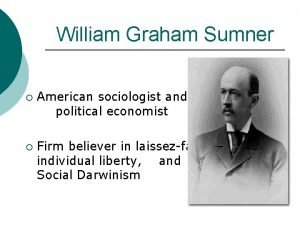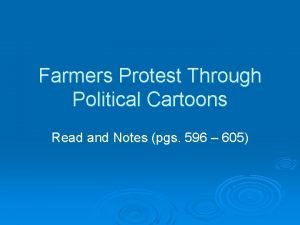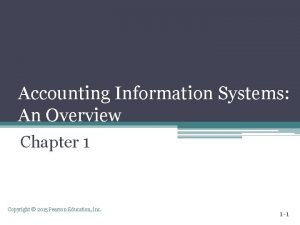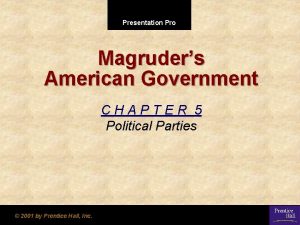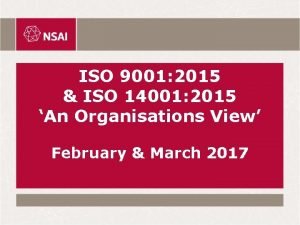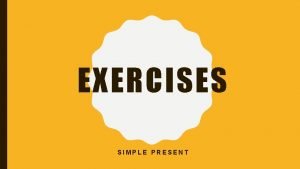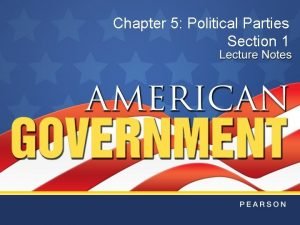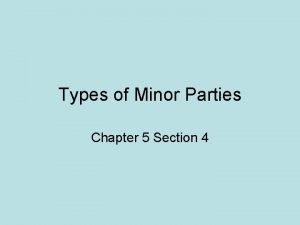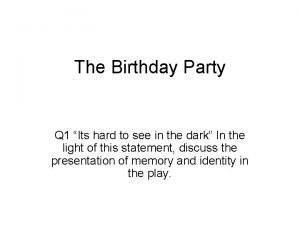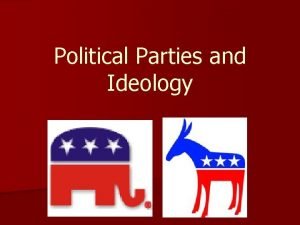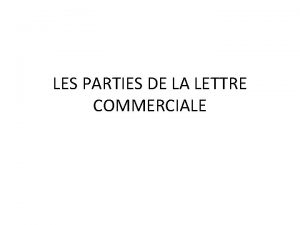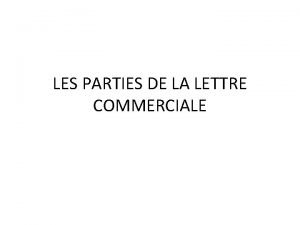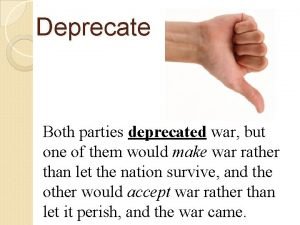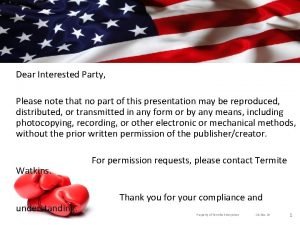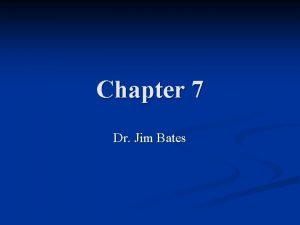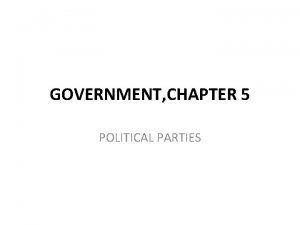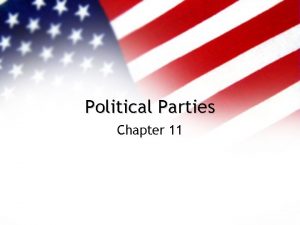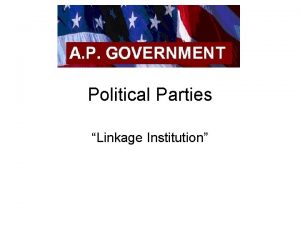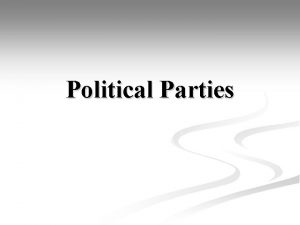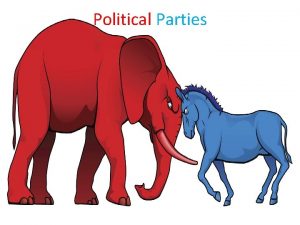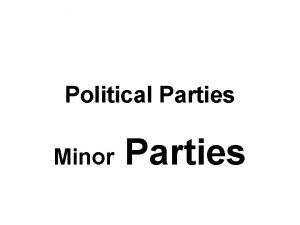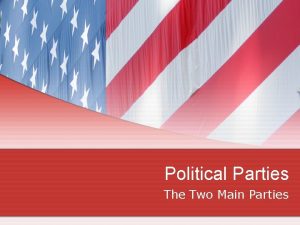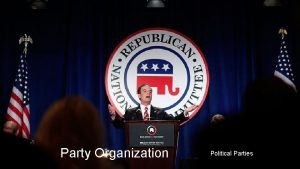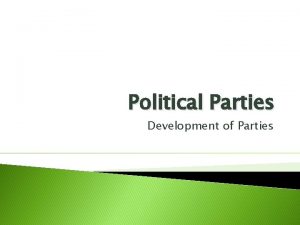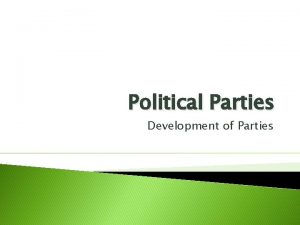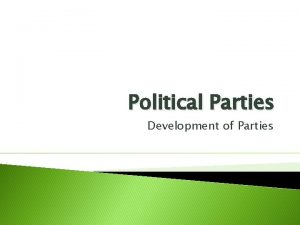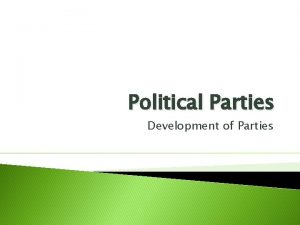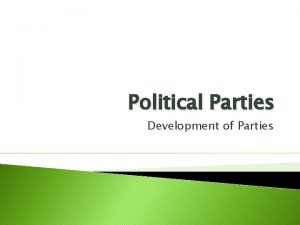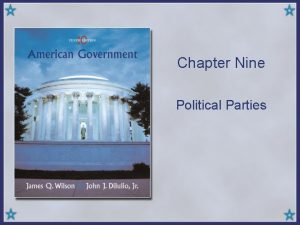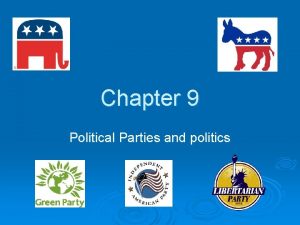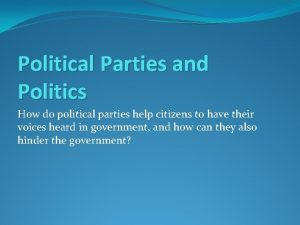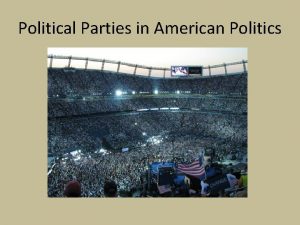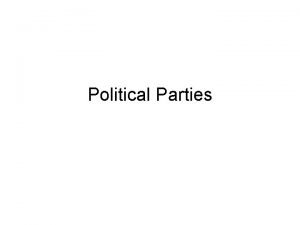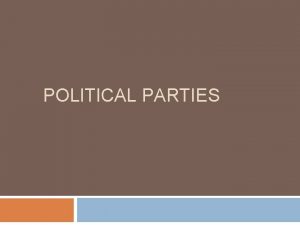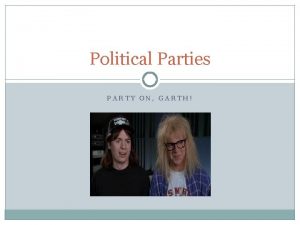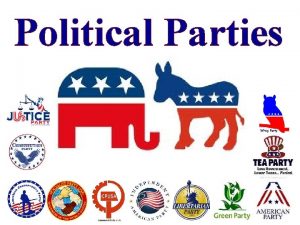Political Parties and Politics Political Party an association





































- Slides: 37

Political Parties and Politics



Political Party • an association of voters with broad, common interests who want to influence or control decision making in government by electing the party’s candidates to public office.

Political Parties… • Political parties try to persuade voters and candidates alike to the candidates of their party • Anyone can join a political party

Two-Party System • a system of government in which two parties compete for power

Third Party • a party that challenges the two major parties – Sometimes called minor parties • No third party candidate has ever won the presidency

Single-Issue Party • a party that’s goal is not to win an election, but promote a social, economic or moral issue • Example: Prohibitionist Party * goal was to make alcohol illegal

Ideological Party • focus on changing society in major ways • Examples: Socialist Labor Party and the Communist Party USA * goal is to have the government to control factories, transportation, resources such as farmland other businesses



Independent Candidate • a candidate who does not gain the support of one party, and who runs with only the support of their backers • Example: Ross Perot

One Party System • political party and the government are basically the same thing. • Example: People’s Republic of China * Communist Party is the only party, and only Communist candidates can run for office

Theocracy • a government controlled by religious leaders • Example: Iran


Democratic Party • believe the federal government should be more directly involved in regulating the economy and providing housing, income education and jobs for the poor


Republican Party • believe in less government regulation of the economy will promote growth and production and if the nations economy grows, poor people will then have a better chance of finding jobs on their own


Platform • a series of statements expressing the party’s principles, beliefs, and positions on election issues

Plank • Each individual part of a political party’s platform

National Party Chairperson • an individual elected by the national committee who manages the daily operations of the national party

Delegate • representative sent to a meeting


Caucus • a meeting of political party members to conduct party business, such as choose party delegates

Precinct • a geographic area that contains a specific number of voters

Ward • several adjoining precincts making up a larger election unit

Political Machine • a strong party organization that can control political appointments and deliver votes


Nomination • a process by which political parties select and offer candidates for public office

Direct Primaries • An election in which voters choose candidates to represent each party in a general election • All states use direct primaries to nominate candidates at all levels of government


Closed Primary • an election in which only the declared members of a party are allowed to vote for that party’s nominees • Florida is a closed primary state

Open Primary • an election in which voters need not declare their party of preference

Runoff Primary • a second primary election primary between the two candidates who received the most votes in the first primary election

Petition • a process by which qualified voters sign papers declaring support for a candidate or issue

 Political
Political Political parties pros and cons
Political parties pros and cons Third party vs fourth party
Third party vs fourth party Win the white house brainpop
Win the white house brainpop What was one way progressives differed from populists
What was one way progressives differed from populists Political parties
Political parties The supreme court change
The supreme court change World political parties
World political parties Political parties
Political parties Populism political cartoons
Populism political cartoons Monroe doctrine cartoon meaning
Monroe doctrine cartoon meaning Objectives of political party
Objectives of political party Create a political party project
Create a political party project Kathy cocuzzi political party
Kathy cocuzzi political party Political party
Political party Political party
Political party Political party project
Political party project Political party organization chart
Political party organization chart George washington political party
George washington political party Graham sumner roman
Graham sumner roman Analyzing the populist party through political cartoons
Analyzing the populist party through political cartoons Accounting information system chapter 1
Accounting information system chapter 1 Chapter 5 section 1 parties and what they do
Chapter 5 section 1 parties and what they do Internal and external issues template
Internal and external issues template Sarah and pam often go to parties
Sarah and pam often go to parties Chapter 5 section 1 parties and what they do
Chapter 5 section 1 parties and what they do Chapter 5 section 4 the minor parties reviewing key terms
Chapter 5 section 4 the minor parties reviewing key terms Creative writing on a birthday party
Creative writing on a birthday party Self-announcement definition
Self-announcement definition Lunch feast meaning
Lunch feast meaning Les parties de la lettre commerciale
Les parties de la lettre commerciale Les parties de la lettre
Les parties de la lettre Race de dauphin
Race de dauphin Both parties deprecated war meaning
Both parties deprecated war meaning Dear interested
Dear interested Microscope optique
Microscope optique Why is myrtle wilson upset when she sees tom and jordan
Why is myrtle wilson upset when she sees tom and jordan Economic protest parties definition
Economic protest parties definition
